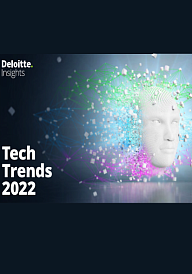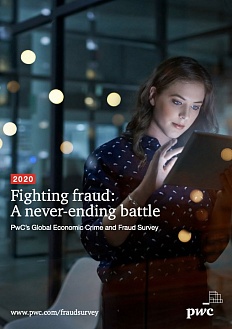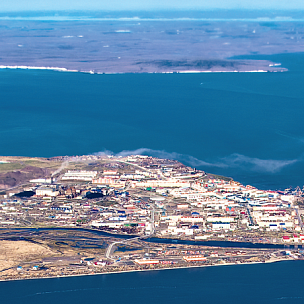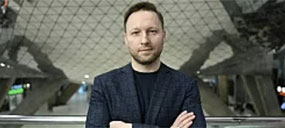In this year’s Tech Trends report, Deloitte examines how enterprises are automating, abstracting, and outsourcing their business processes to tech tools in order to raise their efficiency and tackle innovative projects.
The Roscongress Foundation presents the salient points of the publication accompanied by fragments of broadcasts of relevant panel discussions from the business programme of international events held by the Roscongress Foundation.
With data-sharing getting easier, cyberattacks become a burning issue. This calls for AI as a defense.
New technologies simplify the mechanics of data-sharing while preserving privacy. As part of a growing trend, organizations are unlocking more value from their own sensitive data while leveraging enormous volumes of externally sourced data that has traditionally been off limits. This can open new opportunities. Indeed, the ability to share secured data with others within an ecosystem or value chain is giving rise to new business models and products. For example, by pooling clinical data on shared platforms in the early days of the COVID-19 pandemic, researchers, medical authorities, and drug makers were able to accelerate the development of treatments and vaccines. Moreover, these same data-sharing protocols have helped drug makers, government agencies, hospitals, and pharmacies coordinate and execute expansive vaccination programs that prioritize efficiency and safety while preserving intellectual property. According to Deloitte, more than 70% of global data and analytics decision-makers are expanding their ability to use external data. As the data-sharing trend advances, more organizations are expected to engage in «data collaboration» to tackle common challenges.
However, Deloitte experts say, security teams may soon be overwhelmed by the volume, sophistication, and difficulty of detecting cyberattacks. Enterprise attack surfaces are expanding exponentially. The use of 5G is growing, along with the number of network-connected devices; remote work is gaining ground; and third-party attacks have become increasingly pernicious. Deloitte analysts point out that cyber AI can be a force multiplier that enables organizations not only to respond faster than their attackers can move but also to anticipate these moves and act in advance. AI can be expanded beyond established applications, such as using it to accelerate data analysis, identify anomalies, and detect threats. These emerging AI techniques can help human analysts focus on prevention and remediation, and developing a more proactive, resilient security posture. And as AI is adopted across the business, it can also be leveraged to help protect valuable AI resources and combat AI-powered attacks.
Video: https://roscongress.org/sessions/analiziruy-vse-revolyutsiya-bolshikh-dannykh/search/#00:44:25.471
Enterprises make heavy use of automation, blockchain and cloud technologies to meet their strategic and operational needs.
Faced with creeping technological complexity and higher expectations of stability and availability, some CIOs are radically reengineering their IT organizations. They are identifying repetitive, manual processes and applying a combination of engineering, automation, and selfservice. The net result is streamlined timelines, accelerated value delivery, and more effective and stable IT across the board. Migrating away from manual administration to engineering and automation, organizations can manage complex systems more effectively and improve the customer experience through improved availability and resilience.
Deloitte notes that hyperscalers and SaaS vendors are working with global system integrators and clients to provide modularized, vertical-specific business services and accelerators that can be easily adopted and meet the strategic and operational needs of individual organizations and whole sectors alike. Blockchain and DLT platforms are well on their way to driving real productivity too. They are fundamentally changing the nature of doing business across organizational boundaries and helping companies reimagine how they make and manage identity, data, brand, provenance, professional certifications, copyrights, and other tangible and digital assets. As enterprises get comfortable with blockchain and DLT, creative use cases are cropping up in many industries, with established industry leaders expanding their portfolios and creating new value streams, while startups dream up exciting new business models.
Physical assets are crucial in technological development.
With the explosion of «smart devices» and the increased automation of physical tasks, IT’s remit is growing again, extending beyond laptops and phones. CIOs must now consider how to onboard, manage, maintain, and secure such business-critical physical assets as smart factory equipment, automated cooking robots, inspection drones, health monitors, and countless others. Because outages could be business- or life-threatening, devices in the evolving physical tech stack require the highest levels of system uptime and resilience. Deloitte experts think that a fresh approach to device governance and oversight may be needed to help IT manage unfamiliar standards, regulatory bodies, and liability and ethics concerns. Finally, CIOs likely will need to consider how to procure needed technology talent and reskill the current workforce.
Gain more insights about emerging technologies in the Artificial Intelligence, AI, Blockchain, Big Data, Innovation infrastructure, IT industry, and Cybersecurity sections of the Roscongress Information and Analytical System.






